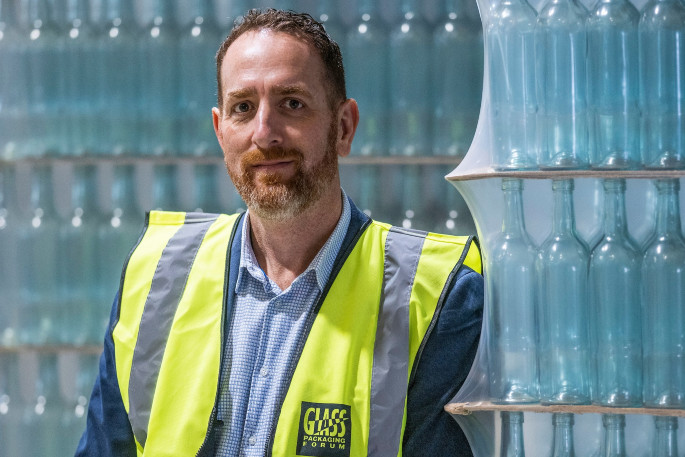The Glass Packaging Forum's long-standing advocacy for separate kerbside glass collections has been backed by a recent report from WasteMINZ.
The Recommendations for standardisation of kerbside collections in Aotearoa report, prepared for the Ministry for the Environment and published this month, recommends local authorities are incentivised to collect glass bottles and jars separately to other recyclable materials.
GPF Scheme Manager Dominic Salmon says the report supports the work the scheme has been doing with councils to advocate for separate glass collections.
'This best practice for glass collections not only improves the quality and quantity of glass which can be recycled, it improves the quality of all materials in kerbside recycling because it prevents contamination. It's a win all round.”
Statistics from the country's only glass recycling plant show separating glass from other recyclables has resulted a marked increase in the amount of glass being collected. These ranged from 34 per cent up to 62 per cent, Dominic says.
'Tauranga City Council is a recent example. When it implemented a separate glass collection service in October 2018 the recycling rate for glass doubled in a year,” says Dominic.
The GPF helped fund bins for the new service – the biggest grant allocated to date.
Dominic noted while there had been a number of councils which have recently moved to separate glass collections the majority of the population doesn't have access.
'Our two biggest cities Auckland and Christchurch still use a co-mingled wheelie bin system, which results in a high loss of recyclable material.”
The WasteMINZ report shows 11 local authorities or 16 per cent have comingled recycling wheelie bin collections that include glass but represent 47 per cent of the population. In contrast, 44 local authorities or 66 per cent have a separate glass collection or a kerbside glass sort and represent 43 per cent of the population.
Dominic also points out that separate glass collections are half of the solution.
'It's vital there is infrastructure to store colour-separated glass which allows for efficient transport to the furnace to be recycled in Auckland. The GPF has been very active in funding projects which allows councils and processors to do this,” says Dominic.
The GPF has to date funded over $3.6 million in grants to improve glass recycling, of which over $1.4 million has been for infrastructure projects.
Established in 2006, the Glass Packaging Forum is part of The Packaging Forum which is dedicated to developing product stewardship across packaging materials and the packaging supply chain. The GPF meets its objectives through the management of its independent, accredited product stewardship scheme.
A primary function of the GPF is to ensure that as much waste container glass - bottles and jars - as possible is diverted from landfill. This is done through the provision of infrastructure to improve glass recovery and facilitate glass recycling and through research of alternative uses for waste glass. These activities are supported by a comprehensive consumer awareness programme.
The GPF is funded through its membership which pay a voluntary levy related directly to the volume of glass each sells into the New Zealand market place.



0 comments
Leave a Comment
You must be logged in to make a comment.